Wild Woodbury at Bere Regis in 'extraordinary' restoration
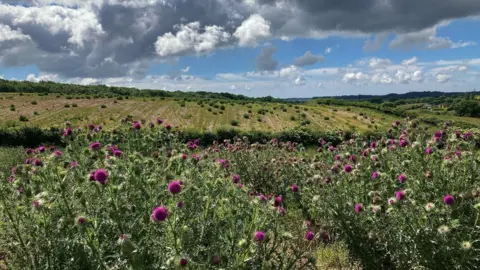 Dorset Wildlife Trust
Dorset Wildlife TrustAn "abundance" of species has moved onto a piece of barren land since it was acquired by a wildlife trust.
Eight birds on the Conservation Concern Red List are breeding at Wild Woodbury at Bere Regis, Dorset, after it was allowed to naturally regenerate.
Dorset Wildlife Trust gained the 170 hectare (420 acre) site in June 2021, when it was being intensively farmed.
Wilder Dorset project manager Rob Farrington said the change since had been "extraordinary".
Previously its fields had high levels of fertiliser, herbicides, and pesticides, making little space for species to thrive.
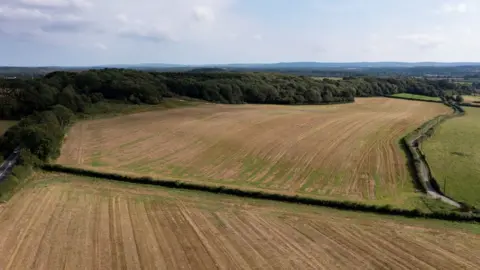 Dorset Wildlife Trust
Dorset Wildlife Trust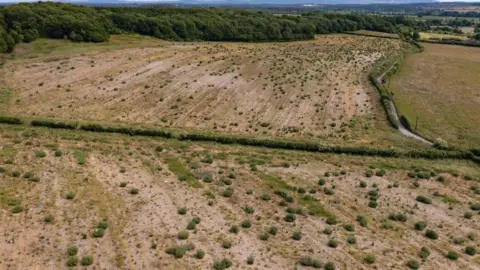 Dorset Wildlife Trust
Dorset Wildlife TrustStaff and volunteers have since recorded more than 1,300 species at the site.
They include:
- Cuckoo, whinchat, and nightjar
- An increase of two skylarks to 18
- 28 yellowhammers
- A breeding pair of tree pipits
- More than 200 meadow brown butterflies, and newly-hatched painted ladies
- 300 species of beetles, bugs, and spiders
- Lesser quaking grass
- Narrow-leaved lungwort, red hemp nettle, three species of orchid, and cobalt crust fungi
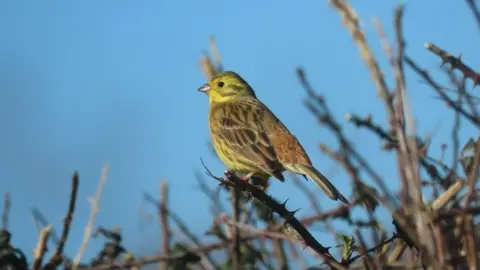 Dorset Wildlife Trust
Dorset Wildlife TrustThe trust said the the dry spring and an increase of invertebrates had helped make it a "very positive breeding season for birds".
Meanwhile, the hot weather in July and August had increased moth activity, such as the rare dingy mocha.
Mr Farrington said: "The aim of rewilding Wild Woodbury is to build an exemplar for sustainable land use to tackle the climate and ecological crises, letting nature take the lead as much as possible, and the restoration of natural processes on the site should provide the right conditions for many species to return in greater numbers over the coming years.
"Restoring a landscape and making space for nature on this scale takes time of course, but it is extraordinary to see all that has been achieved in just one year, and to witness the abundance of wildlife which has made its home at Wild Woodbury."
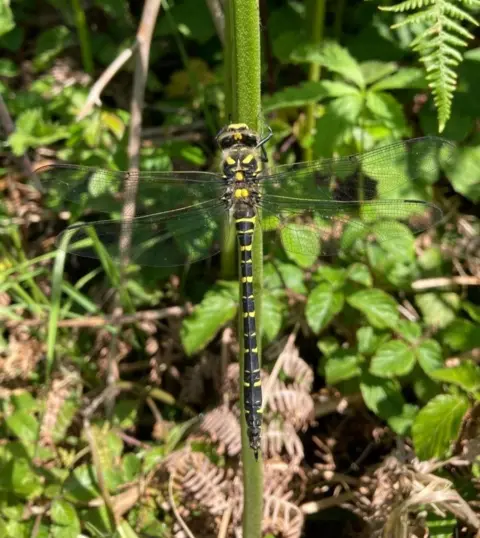 Dorset Wildlife Trust
Dorset Wildlife Trust
Follow BBC South on Facebook, Twitter, or Instagram. Send your story ideas to [email protected].
